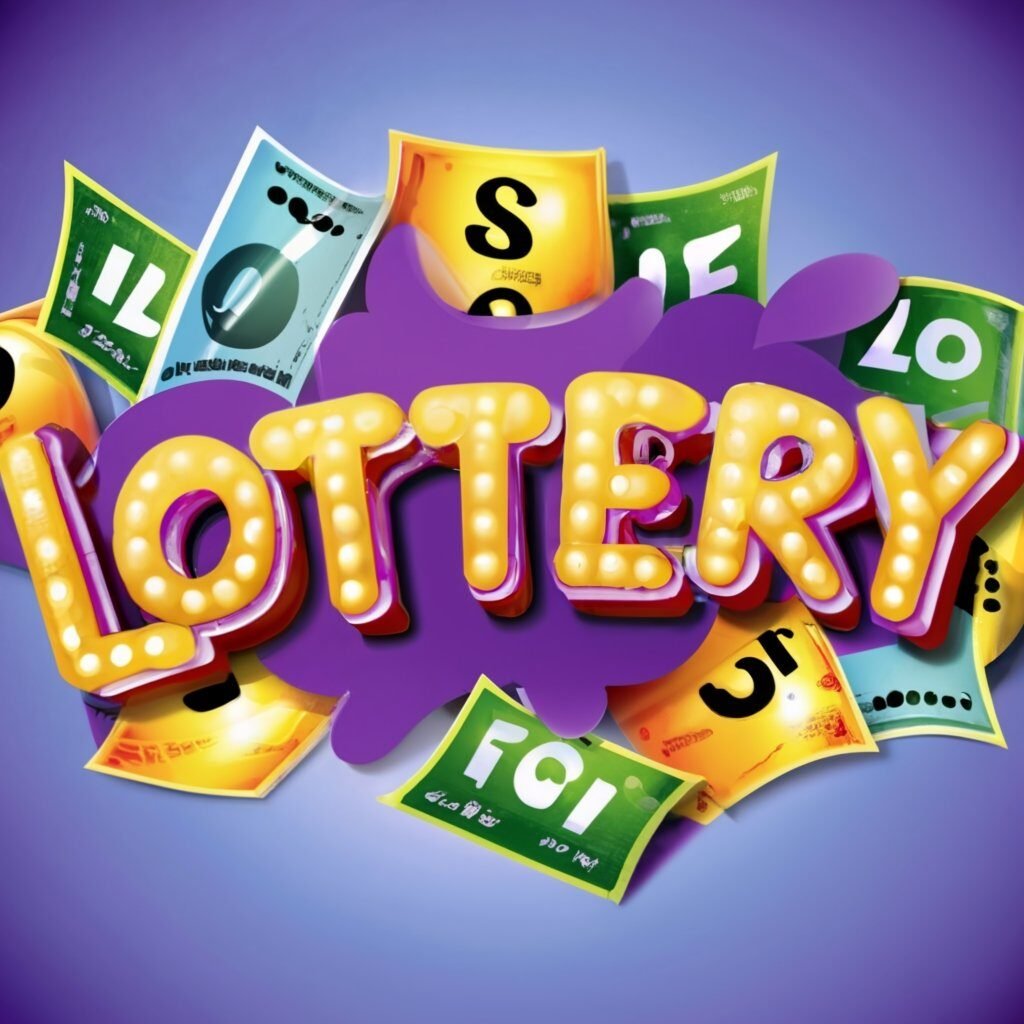Have you ever wondered about the mechanics behind the exhilarating world of lotteries in the United States? Well, here’s a chance to demystify the process! In this article, we will explore the fascinating mechanisms that govern lotteries in the US, shedding light on everything from ticket sales and odds to the distribution of winnings. Get ready to discover the ins and outs of how lottery works in the US.
Types of Lotteries in the US
Powerball
Powerball is one of the most popular lottery games in the United States. It is a multi-state lottery game that is available in 45 states, as well as the District of Columbia, Puerto Rico, and the U.S. Virgin Islands. Powerball offers players the chance to win life-changing jackpots, with prizes often reaching hundreds of millions of dollars. To play Powerball, you must select five numbers from a pool of 69 and one Powerball number from a pool of 26. The drawing for the winning numbers takes place twice a week.
Mega Millions
Mega Millions is another immensely popular lottery game in the US. Similar to Powerball, Mega Millions is a multi-state lottery game that is available in 46 jurisdictions. Players choose five numbers from a pool of 70 and one Mega Ball number from a pool of 25. The drawings for Mega Millions are held twice a week. This game also offers massive jackpots, with some of the largest ever recorded in history.
Instant Games
Instant games, often referred to as “scratch-off” tickets, provide an immediate opportunity for players to win cash prizes. These games are available for purchase at authorized retailers throughout the country. Scratch-off tickets come in a wide variety of themes and price points, ranging from small prizes to substantial payouts. The allure of instant gratification makes these games immensely popular among lottery players.
Daily Numbers Games
Daily numbers games offer players the chance to win cash prizes by guessing the correct combination of numbers. These games usually involve selecting three or four digits, and the winning numbers are drawn either once or twice a day, depending on the game. daily numbers games provide frequent opportunities for players to participate and potentially win prizes.
Scratch-off Tickets
Scratch-off tickets, as mentioned under the category of instant games, deserve further attention. These tickets are purchased at various retailers and provide an immediate experience of scratching off a covered section to reveal symbols or numbers. Winning combinations result in cash prizes, which can range from a few dollars to substantial amounts.
Regulatory Bodies
State Lottery Commissions
Each state with a lottery has a dedicated State Lottery Commission responsible for overseeing and regulating its lottery operations. These commissions ensure that lottery games comply with state laws, including rules on ticket sales, prize payouts, and security measures. State Lottery Commissions also work to prevent fraud and protect consumers.
Multi-State Lottery Associations
Multi-State Lottery Associations, such as the Powerball and Mega Millions associations, are responsible for operating and managing multi-state lottery games. These associations coordinate the participating states, oversee ticket sales and prize payouts, and conduct the drawings. They work closely with the individual state lottery commissions to ensure compliance and fairness in the games.
Gaming Control Boards
Gaming Control Boards, commonly found at the state level, regulate various forms of gambling, including lotteries. These boards ensure the integrity of lottery operations, oversee audits, and enforce compliance with regulations. They play a crucial role in maintaining transparency and fairness in the lottery industry.
Ticket Purchase
Retailers
Lottery tickets are primarily purchased through authorized retailers, which can include convenience stores, gas stations, supermarkets, and dedicated lottery retailers. These retailers are licensed by their respective state lottery commissions to sell lottery tickets. They provide convenient access to tickets for players and often display information on current games and jackpot amounts.
Online Platforms
In recent years, some states have started offering online platforms for lottery ticket sales. These platforms allow players to purchase tickets remotely using their computers or mobile devices. Online platforms provide added convenience and accessibility, particularly for individuals who may have difficulty accessing physical retail locations. However, not all states have implemented online ticket sales, as regulations and laws vary.
Age Restrictions
To purchase lottery tickets in the United States, you must be at least 18 years old in most states. However, there are a few states where the minimum age requirement is 21. These age restrictions are in place to ensure responsible gaming practices and compliance with state laws. Retailers and online platforms are required to verify the age of customers before allowing them to purchase tickets.
Drawing Process
Random Number Generators
lottery drawings utilize random number generators (RNGs) to determine the winning numbers. These computer programs generate random sequences of numbers, ensuring that the outcome of each drawing is entirely fair and unbiased. RNGs are extensively tested and certified by independent agencies to ensure the integrity of the drawing process.
Frequency of Draws
The frequency of lottery draws varies depending on the game. Powerball and Mega Millions, for example, have two drawings per week, typically held on Wednesdays and Saturdays. Instant games and daily numbers games may have several drawings per day or every few hours. The specific schedule for drawings is determined by the individual state lottery commissions and multi-state lottery associations.
Public Observation
To maintain transparency and instill confidence in the drawing process, lottery drawings are often open to the public. Members of the public, including lottery officials, auditors, and sometimes even media representatives, can attend the drawings. This allows for public observation and ensures that the drawings are conducted in a fair and unbiased manner.
Security Measures
Lottery drawings are subject to stringent security measures to prevent tampering or manipulation. Independent auditors oversee the entire drawing process, confirming that proper procedures are followed. Additionally, drawings are recorded on video and stored securely to serve as evidence of the outcome. These security measures are in place to protect the integrity of the lottery and maintain public trust.
Odds of Winning
Overall Probability
The overall probability of winning a lottery game is determined by the number of possible combinations and the specific game’s rules. With millions of potential number combinations, the odds of winning a lottery jackpot are generally quite low. However, there are also numerous smaller prize tiers with better odds of winning, offering players additional chances of receiving a cash prize.
Jackpot Odds
The odds of winning the jackpot in a lottery game, such as Powerball or Mega Millions, are astronomically slim. The combination of the game’s number pools and the specific rules dictate the odds of matching all the winning numbers. While the odds of hitting the jackpot can be discouragingly low, the allure of the massive cash prizes generated by these games keeps players motivated.
Prize Tiers and Chances
Lottery games often feature multiple prize tiers, providing players with various chances of winning. These prize tiers correspond to different combinations of winning numbers. For instance, in Powerball, matching only the Powerball number can result in a smaller cash prize. The specific prize tiers and their corresponding chances of winning vary between different lottery games.
Variable Odds
The odds of winning a lottery prize can be variable depending on the specific game and the size of the jackpot. When the jackpot reaches higher amounts, the odds of winning a smaller prize may decrease. This is because more people tend to play the lottery when the jackpot is exceptionally large, increasing the competition for smaller prizes. However, the overall probability remains unchanged.
Claiming Prizes
Time Limitations
Lottery players must claim their prizes within a specified time period after the drawing. This timeframe varies between states but is typically around 180 days (six months). If a winner fails to claim their prize within the designated time, their winnings may be forfeited, and the money may be allocated to other purposes, such as education funding or supporting problem gambling initiatives.
Anonymity Options
In some states, lottery winners have the option to remain anonymous. This allows winners to protect their privacy and avoid potential unwanted attention. However, not all states provide this option, and winners may be required to disclose their identities as part of the state’s transparency regulations. It is important for winners to familiarize themselves with the specific rules in their state regarding anonymity options.
Lump Sum vs Annuity Payments
Lottery winners often have the choice between receiving their winnings in a lump sum or through annuity payments. The lump sum option provides the entire jackpot amount upfront, but at a reduced value due to taxes and discount rates. annuity payments, on the other hand, spread the prize over a specified number of years, with each payment including interest. The choice between these two payment options depends on each winner’s financial goals and preferences.
Tax Liabilities
Winning a lottery prize comes with certain tax obligations. Lottery winnings are considered taxable income by the Internal Revenue Service (IRS), and winners are required to report their winnings. The amount of taxes owed varies depending on the size of the prize and the winner’s overall income. It is crucial for winners to consult with a tax professional to understand their tax liabilities and ensure compliance with the relevant tax laws.
Lottery Revenue Allocation
Education Funding
One of the primary purposes of lottery revenue allocation is to provide funding for education. Lottery profits are often earmarked to support public education systems, including funding for school infrastructure, teacher salaries, and educational programs. This allocation helps supplement traditional funding sources and allows for additional investments in education.
Infrastructure Development
Lottery revenue is sometimes dedicated to infrastructure development projects, such as the construction or renovation of public facilities. This allocation can help finance vital infrastructure improvements, including transportation systems, community centers, and public parks. By investing in infrastructure development, lottery revenue contributes to enhancing the quality of life in communities.
Veteran Support
Many states allocate a portion of their lottery revenue to support programs and initiatives focused on helping veterans. These funds can be used to provide healthcare services, housing assistance, job training, and other essential resources for military veterans. By allocating revenue to veteran support programs, lotteries play a role in honoring and assisting those who have served their country.
Problem Gambling Initiatives
Recognizing the potential risks associated with gambling, lottery revenue is often used to support problem gambling initiatives. These programs provide resources for education, prevention, and treatment of gambling-related issues. By allocating funds to problem gambling initiatives, lotteries demonstrate their commitment to promoting responsible gaming practices and addressing potential harms.
Social and Economic Impacts
Positive Economic Influence
Lotteries have a significant positive economic influence at both the state and local levels. The revenue generated from lotteries contributes to job creation, economic growth, and increased tax revenue. Lottery retailers benefit from increased foot traffic, and lottery winners inject substantial sums of money into local economies. Additionally, the funds allocated from lottery revenue to education and infrastructure development create lasting economic benefits.
Negative Social Consequences
While lotteries have numerous positive impacts, they can also have negative social consequences. The availability and accessibility of lottery games can lead to an increase in problem gambling behaviors. Excessive gambling can lead to financial hardships, addiction, and strained relationships. It is crucial for individuals to engage in responsible gaming practices and seek assistance if gambling becomes problematic.
Addictive Behavior Concerns
Lotteries, like any form of gambling, carry the risk of addictive behavior. The excitement and potential for large financial gains can entice some individuals to develop addictive tendencies towards gambling. To address this concern, it is essential for the responsible gaming community and government entities to work together to provide resources, education, and support to individuals who may be at risk of developing gambling addictions.
Lottery Tickets and Responsible Gaming
Awareness Campaigns
Lottery organizations invest in awareness campaigns to promote responsible gaming practices. These campaigns aim to educate the public about the potential risks associated with gambling and emphasize the importance of setting limits, controlling spending, and seeking help when necessary. By raising awareness, lotteries encourage responsible gaming behaviors among their players.
Age Verification
To prevent underage gambling, lottery retailers and online platforms implement strict age verification procedures. Retailers may require customers to present valid identification proving their age before selling lottery tickets, while online platforms employ age verification systems to ensure compliance with age restrictions. These measures are crucial in maintaining the integrity of the lottery and preventing minors from participating.
Player Exclusions and Limits
Lottery organizations provide options for players to exclude themselves or set limits on their gambling activities. These measures, such as self-exclusion programs and deposit limits, allow individuals to take control of their gambling habits. Players can voluntarily request to be excluded from purchasing lottery tickets or set limits on the amount of money and time spent on lottery games.
Support for Responsible Gambling Organizations
Lottery organizations often support and collaborate with responsible gambling organizations. These partnerships involve financial contributions, sharing resources, and promoting responsible gaming practices. By working closely with these organizations, lotteries demonstrate their commitment to player well-being and the prevention of problem gambling.
Future of Lottery in the US
Emerging Technologies
The future of lotteries in the US is poised to embrace emerging technologies. Online platforms have already started to gain traction in certain states, and this trend is expected to continue. In addition, advancements in mobile applications and digital wallets may further enhance the convenience and accessibility of lottery ticket purchases. The integration of technologies such as blockchain may also provide added security and transparency to lottery operations.
Online Lottery Expansion
As online platforms become more prevalent, it is anticipated that more states will explore and implement online lottery expansion. By allowing customers to purchase tickets through secure online channels, lotteries can reach a wider audience and generate increased revenue. However, online lottery expansion must be carefully regulated to safeguard against potential risks and ensure responsible gaming practices.
Changing Demographics
The demographics of lottery players are changing, which will impact the future of lotteries in the US. Younger generations, who have grown up with digital technologies, may prefer online platforms and mobile applications for ticket purchases. Additionally, the increasing popularity of alternative forms of entertainment and gambling may shape the future landscape of lotteries. As demographic preferences evolve, lotteries must adapt to meet the evolving needs and preferences of their player base.
In conclusion, lotteries in the US offer a variety of games and opportunities for players to win substantial cash prizes. The regulatory bodies, ticket purchase options, drawing process, odds of winning, claiming prizes, revenue allocation, social and economic impacts, responsible gaming initiatives, and the future of lotteries all contribute to the overall lottery experience. By understanding the intricacies of how lotteries operate, players can make informed decisions, enjoy responsible gaming, and potentially experience the thrill of winning a life-changing prize.





